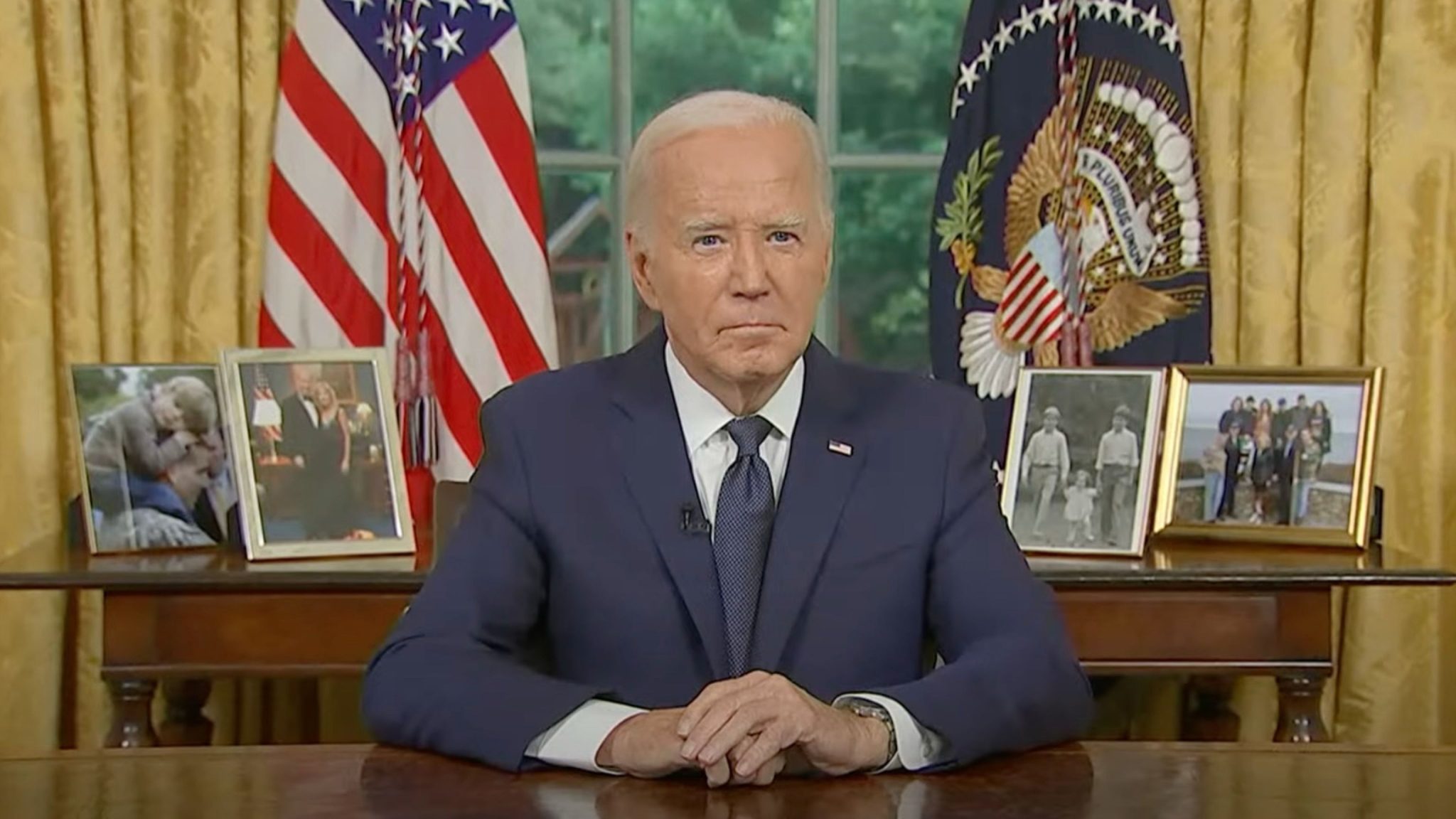The Biden Switcheroo

◼ Joe Biden quit the presidential race, but in his national address on Wednesday night he did not really tell us why. The closest he got was a vague, cursory reference to being unable to unite his party: “In recent weeks, it has become clear to me that I need to unite my party in this critical endeavor. I believe my record as president, my leadership in the world, my vision for America’s future, all merited a second term. But nothing, nothing can come in the way of saving our democracy.” Perhaps he felt that the likes of Nancy Pelosi, Barack Obama, and Chuck Schumer had pried the nomination out of his hands. But it was obvious from the polls and his age that he had no path to reelection. Once again the president looked and sounded every one of his eighty-one and a half years—speaking in a soft, raspy voice, failing to enunciate, and mumbling at times. Like it or not, Joe Biden intends to remain commander in chief for the next six months. May God watch over him, and us, for all of those days.
◼ Sometimes political parties coalesce around a new presidential nominee slowly and begrudgingly. Sometimes they do it quickly and enthusiastically. In the case of the 2024 Democratic Party and Vice President Kamala Harris, party unity was achieved with the speed and ease of the drive-thru lane at McDonald’s. After Biden’s abysmal performance in the debate and subsequent doddering, forgetful appearances, Democrats developed the political equivalent of post-traumatic stress disorder—they’d welcome any nominee who didn’t seem geriatric and who could pound the podium about abortion. The gripes that Harris didn’t earn the nomination don’t hold that much water. If you were one of the 14 million people who voted for Biden in the primaries, you were voting to keep Harris one octogenarian’s heartbeat away from taking over. After news of Biden’s withdrawal from the race broke on Sunday, any one of those other Democratic options could have announced a challenge to Harris—Gavin Newsom, Gretchen Whitmer, etc.—and they all, rationally, took a pass. Democrats seem to consider her a perfect encapsulation of their party, and who are we to disagree?
◼ After years of characterizing Harris’s role overseeing the migration crisis at the southern border as that of “border czar,” the mainstream media are now claiming that she was never actually the border czar and are attempting to fact-check Republicans who describe her as such. Axios wrote that “the Trump campaign and Republicans have tagged Harris repeatedly with the ‘border czar’ title—which she never actually had,” even though Axios published an article in 2021 that noted that Harris had been “appointed by Biden as the border czar.” Of course, “border czar” is not an official government title. It is an informal description coined to refer to Harris’s White House role, which, according to President Biden, was to “stem the flow” of migrants arriving at the southern border. Because Harris failed to do that, Democrats and their media apologists are trying to get the public to forget that managing the migration crisis was ever her job in the first place. Don’t let them fool you.
◼ If Harris supports the programs she supported the first time she ran for president, the federal budget is in even more trouble. Harris went big during her failed campaign for president in 2020, blowing through $40 million and then dropping out before the first primary election. Her policy positions demonstrated a similar level of fiscal discipline. She supported Bernie Sanders’s “Medicare for All” (until she didn’t), a $3,000 per year refundable tax credit for low- and middle-income families (which would be on top of all the other welfare programs and tax credits that already exist), universal pre-K, child-care subsidies, elder-care subsidies, and a plan that would have given most Americans $2,000 per month for the entire pandemic-emergency period. Her proposed tax increases would do a lot to damage investment and economic growth and, compared with the spending, little to balance the budget. Republicans are plenty irresponsible too, promising large tax cuts and no entitlement reforms. It’s a competition to break the bank, and Harris looks likely to take the lead.
◼ “I know nothing about Project 2025,” Donald Trump posted on his social-media platform, Truth Social. His political opponents and the media insist, for once, that Trump is much more knowledgeable than he claims. Several former Trump-administration officials are associated with the project, organized by the Heritage Foundation, that seeks to inform the policy agenda of the next conservative White House. Its proposals fall squarely within the mainstream of modern conservative thought, with an added emphasis on the president’s rightful power over the executive branch and a random walk through social issues. (The drafters would enforce the law against interstate shipment of abortion agents and ban pornography but otherwise leave abortion unregulated at the federal level and leave governmental recognition of same-sex marriage undisturbed.) “Some of the things they’re saying are absolutely ridiculous and abysmal,” said Trump. Democratic officials and the media have referred to the project in such terms as a “dystopian plot” and a “deranged plan for a far-right authoritarian government.” These critiques would benefit from specificity about discrete items in Project 2025’s nearly 1,000-page plan. But that would require reading it.



